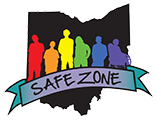
A recent statewide survey done by ODVN (Ohio Domestic Violence Network) asked 588 domestic violence survivors questions to help others understand their experiences when engaging with law enforcement, courts, and social services.
From the female respondents, 153 (or 31%) were black/African American women. Here are a few of the findings uniquely affecting survivors of color.
What are unique concerns for Black/African American survivors when calling the police in a domestic violence situation?
Other fears identified were that no one could/would help them or they would be discriminated against by different agencies.

Legal Measures – Less than 20% of the respondents said if they had known that their partner could be arrested, they would NOT have called the police. Advocates can help survivors understand that legal measures can also include orders of protection, and court interventions do not have to include an arrest.
Advocacy Services – Increased access to advocacy increases survivor safety. More awareness is needed about the support that is available. Law enforcement can improve relationships with local advocacy services and utilize unique policing strategies.
Anti-Bias Training – Ongoing training and connecting resources between social services and local law enforcement can decrease bias and increase access to help.
Strategies in Outreach – Law enforcements and advocacy groups can increase positive engagement with survivors of color, can support staff diversity, and build unique partnerships with community leaders.
Reduction of Police Violence – Survivors recommended more training in de-escalation strategies as a possible outcome for a reduction in police brutality.
Counseling Services – Short term crisis services are often desired and provide important immediate benefits, however, long term assistance past the immediate crisis helps survivors create stability and avoid future risk.
To view ODVN’s full report, visit https://www.odvn.org/reports/
Bethany House provides the services, tools, and resources our guests need to rebuild their lives. To find out how you can help, go to www.bethanyhousetoledo.org/ways-to-help/


Sponsored Ministry of the Sisters of St. Francis of Sylvania, Ohio
Member of the Sylvania Franciscan Ministries